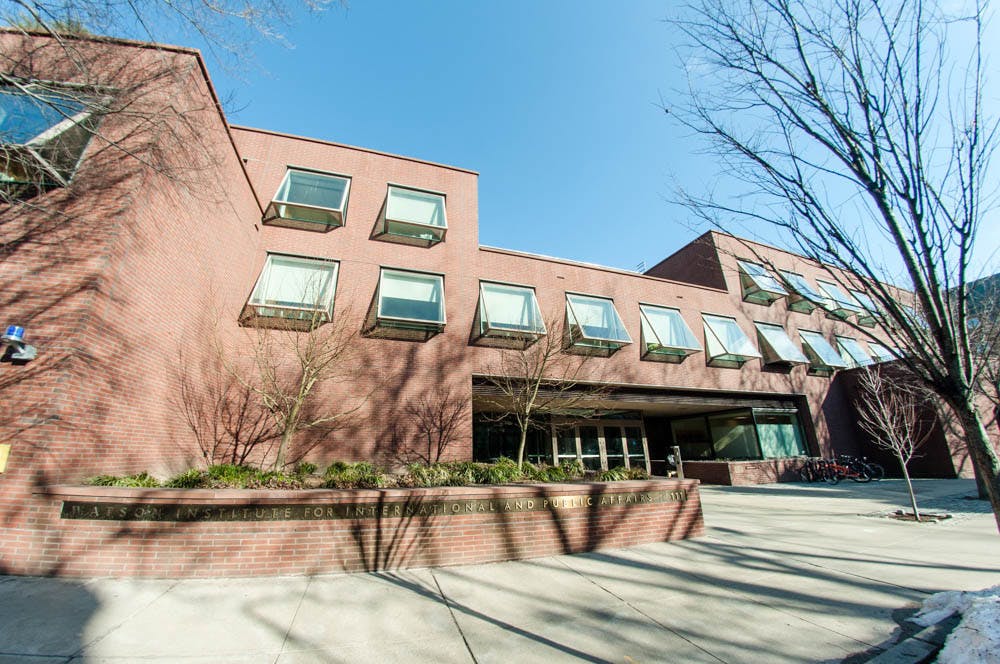Professor Isabel Hofmeyr opened her lecture Monday evening by taking the audience underwater. At the start of her talk, she detailed the dumping of books deemed unacceptable by the British Empire’s custom houses into what she termed “Davy Jones’ library.” Hofmeyr asked attendees to join her in imagining such a dumping ground — the ocean floor three miles off the coast of Durban Harbor in colonial South Africa — as littered with detritus, decomposed books, unused rifles and broken jewelry. Throughout her lecture, she would repeatedly return to the notion of shifting the center of gravity in colonial histories to water, a concept she calls “hydrocolonialism.”
Hofmeyr, a professor of African literature at the University of the Witwatersrand in Johannesburg and professor of English at New York University, was invited to participate in this year’s edition of the annual Andrea Rosenthal Memorial Lecture. The Comparative Literature Department and the Center for Contemporary South Asia co-sponsored the lecture, titled “Shore-shaped Story: How Coast, Colony and Custom House Conduct Literature” at the Watson Institute for International and Public Affairs. By examining goods entering the port city of Durban and the accompanying practices of customs officials, Hofmeyr gave insight into how categorization and censorship reinforced and shaped both colonial hierarchies and the literature that existed under them.
All goods entering Durban on ships were subject to inspection and destruction by customs officials. Such officials had the authority to ban a book if they considered, as Hofmeyr quoted from a customs house record, “Page 67 (to be) objectionable.” Custom houses had control over what entered colonial territories, and thus, what people in these territories had access to. Hofmeyr explored the interaction between the nation state and literature, and how literature — and every other import — was defined in relation to the state.
However, practices of categorizing and prohibiting objects were not standardized. Hofmeyr went so far as to call the system of customs “chaos,” and named the customs officials “dockside ontologists” who spontaneously created categories of being. Objects that did not conform to these acceptable categories of being were unceremoniously poured into the harbor beyond the territorial boundaries of the colony. This harbor became, as Hofmeyr said, “a dumping ground for objects and people considered waste.” In this chaos of categorization, customs officials gave great importance to marks of origin. Hofmeyr explained how every object had to have a mark of origin, and how copyrights became interchangeable with these marks. A British copyright, she said, by virtue of synonymousness with whiteness, became a racial trademark that indicated a good’s acceptability to customs officials.
Hofmeyr displayed lists of goods entering the customs houses that were both extensive and humorous. For example, she pointed out how goods such as bones, books and boot polish were listed alphabetically, implying that they could all be processed in a similar manner. By focusing on the objects, Hofmeyr drew on “object-oriented ontology,” which, as she explained, seeks to examine objects as distinct from their interactions with humans.
“There were a lot of cool specifics,” said Aliosha Bielenberg ’20 after the lecture. “Of course, I didn’t know anything about custom houses in 19th century Durban, South Africa. I don’t think anyone did.”
At the close of the lecture, Hofmeyr brought attendees back to the ocean floor off the coast of South Africa, now with a richer and fuller appreciation for the objects that lay there. As Hofmeyr addressed questions from the audience, listeners slowly emerged from this imagined underwater realm.





